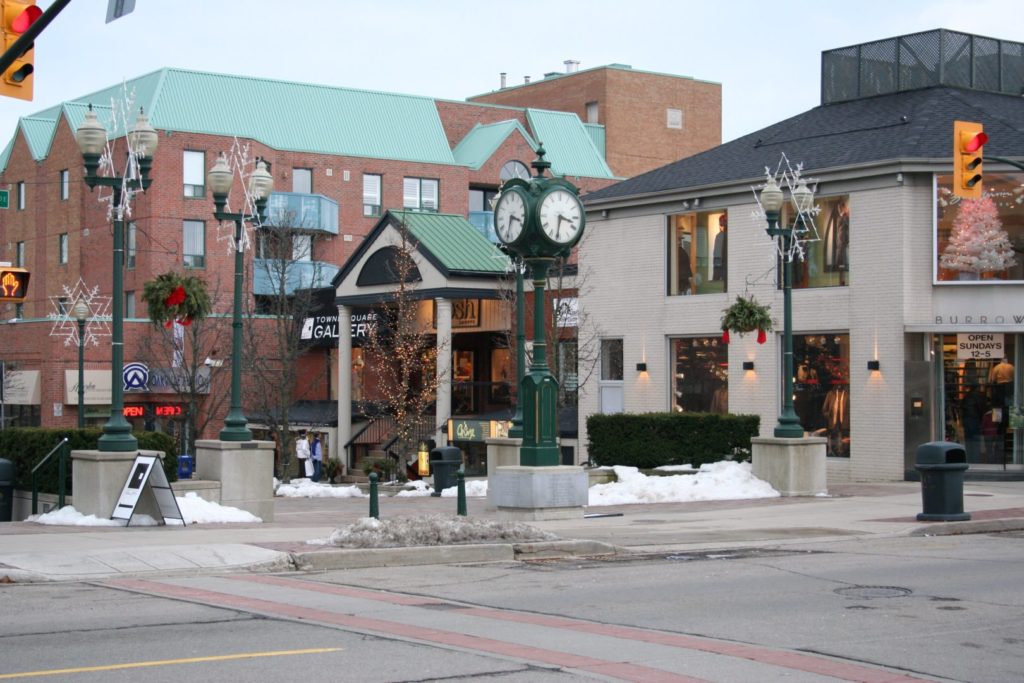Oakville is typically thought of as an affluent area. In fact, in 2017 its residents were found to have the highest median income in Canada. This is a misleading statistic, though, because Oakville has extremely high living costs. The average selling price for a home in Oakville is $1 million, giving the Town the title of the second most expensive housing prices in the GTA. Halton Region has a higher average monthly rent than the three neighbouring regions of Peel, Durham and York, according to Halton Region’s 2017 State of Housing report.
This would be fine if people could actually afford these prices, but the reality is that the poverty rate in Oakville in 2011 was found to be 8.6 per cent by The Oakville Community Foundation’s Vital Signs Report.
In 2011 there were an estimated 1,226 people living on the streets in Halton with an estimated 836 people at risk, according to data from the Homeless Hub. Moreover, 11,130 people were living in core housing need, meaning residents have to spend more than 30 per cent of their income to pay for their home.
The threshold for affordable housing is set at 30 per cent, and in 2017, 51.4 per cent of new home sales in Oakville fell below the affordable threshold.
Additionally, approximately 1,200 people are served each month by the Oakville Fare Share Food Bank, according to their website.
In their Livable Oakville report, the Town outlines their desire to enhance their “economic prosperity and social well-being” through their development decisions. As an organization dedicated to providing affordable housing, Habitat for Humanity Halton-Mississauga-Dufferin fully supports the Town’s mission to become a livable city for everyone who calls it home.
Sadly, below the surface, there are thousands of people in Oakville struggling to make ends meet, and with such high housing prices it is difficult for these people to get the support they need to turn their lives around.
The Town of Oakville’s official plan, set out in 2009, states that the Town will work with the region to provide housing to an “array of socio-economic groups” through affordable housing targets.
According to the Growth Plan for the Greater Golden Horseshoe, released in 2017, municipalities are required to develop a housing strategy which identifies a “diverse range and mix of housing options” including affordable housing.
Oakville was recently given $21 million dollars by provincial and federal governments to create 145 units of affordable housing. The province of Ontario also transferred 128 hectares of land to Oakville for the purpose of affordable housing and green space. As part of that land transfer, Oakville is required to commit $29 million to affordable housing units within the town, according to a press release from the Ontario government.
Habitat has worked in Oakville in the past. We previously had one build of three homes in Oakville. We were able to provide several families with safe, decent and affordable homes, but sadly as we move forward in the area, trying to find available land either through working with government or developers has not delivered any real results.
With land prices so high, for-profit developers are reluctant to donate because of the sheer costs. The Town of Oakville, however, has a number of initiatives on their own and through their recent land partnership with the province, but nothing has yet turned into long term stable and consistent affordable housing.
Habitat staff have been in discussions with Oakville councillors and planners about where Oakville would like to implement affordable housing, and how Habitat can be involved in the process. Oakville has recently reviewed three areas for growth designed to include affordable housing: midtown Oakville, uptown Oakville and Palermo.
At Habitat for Humanity, we are actively working to scale up our build capacity to be able to contribute to efforts to build in areas like those listed above. In order to do this, we need partnerships from municipal governments to help us purchase land at a reasonable cost. Fifty-six per cent of our construction costs go towards land purchasing and other related costs before we even start building. It’s difficult for us to enter the playing field in areas like Oakville since as a nonprofit, we don’t have the upfront funding that other developers have.
Building with Habitat is different than building with standard developers. If a developer builds 200 units of affordable housing, and a family moves in and sells their home in a few years, it will go to sale on the open market, effectively meaning it no longer fits the designation of affordable housing. Habitat’s new deferred home ownership model means we can keep homes in perpetuity, allowing the properties to remain designated as affordable housing forever. It is also worth noting that Habitat homes do not decrease the value of other homes in a neighbourhood.
The idea that Oakville is an affluent area where everyone is economically thriving is dangerous because it promotes the idea that there is no need for affordable housing when, in fact, that opposite is true. At Habitat, we understand the concerns of citizens and staff about the challenges of implementing affordable housing in the area, such as finding land to build on. We are committed to partner with all levels of government to overcome those challenges and create tangible solutions to the affordable housing crisis.
Habitat recently attended an Oakville City Council meeting to speak on record about our desire to partner with the Town to take on the task of creating affordable housing units. The Former Public Works Site Master Plan was being considered at the June 11 meeting, and we recognized its importance as having the potential to be the biggest affordable housing program in Oakville. The plan was passed, and although we haven’t heard anything from the Town we look forward to continuing to be involved in their efforts to create affordable housing.
We would love to be part of the process to help create affordable housing in Oakville, and we are excited to continue fulfilling our mission of creating a world where everyone has a safe and decent place to live. To find out more about the work Habitat is doing in your community, visit our website.
Updated: July 2, 2021

